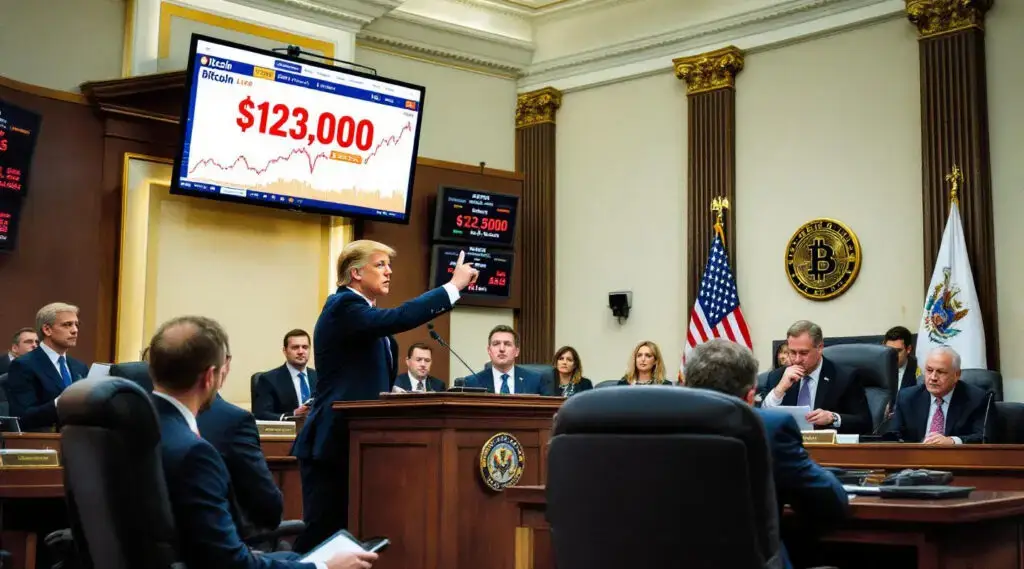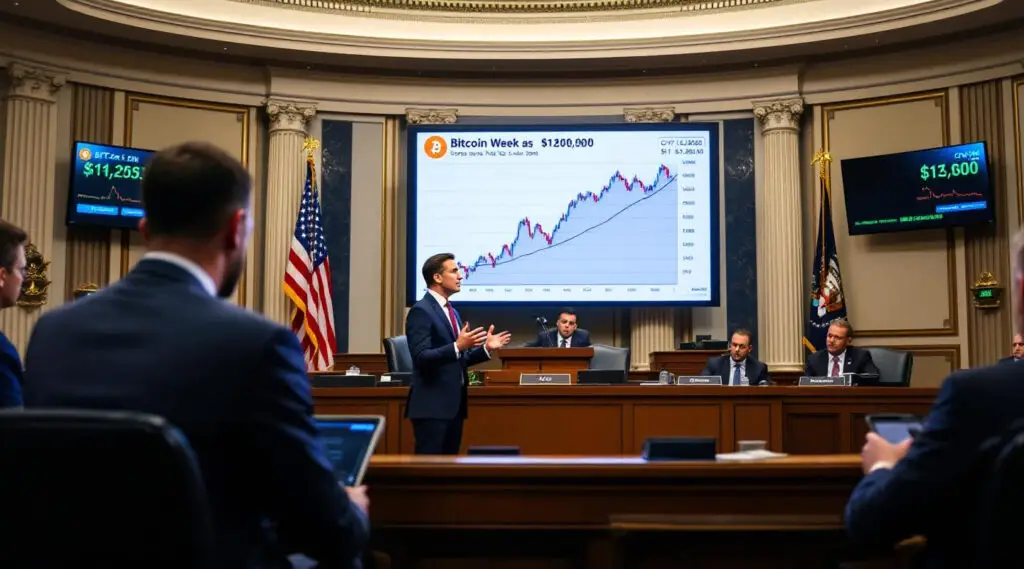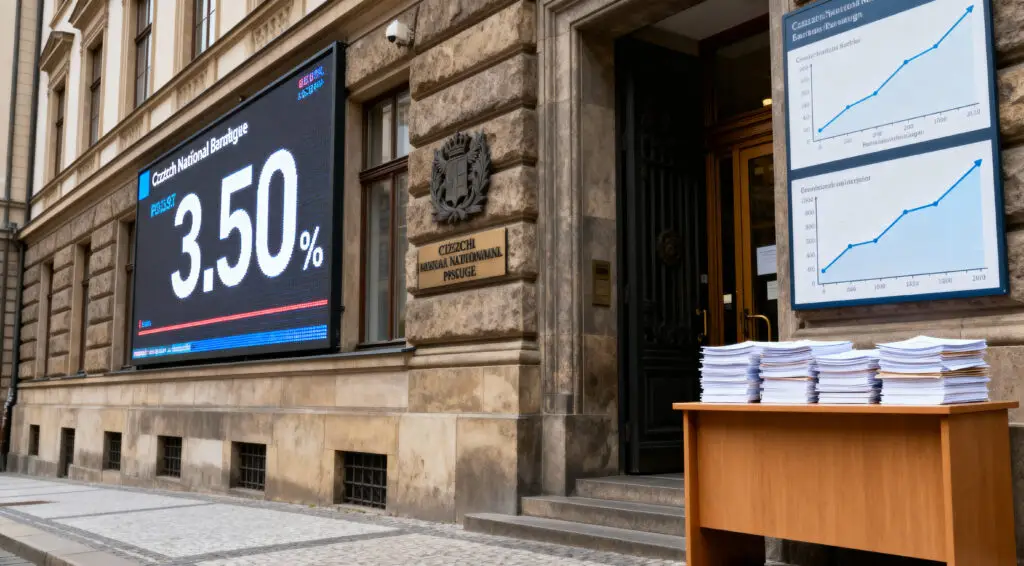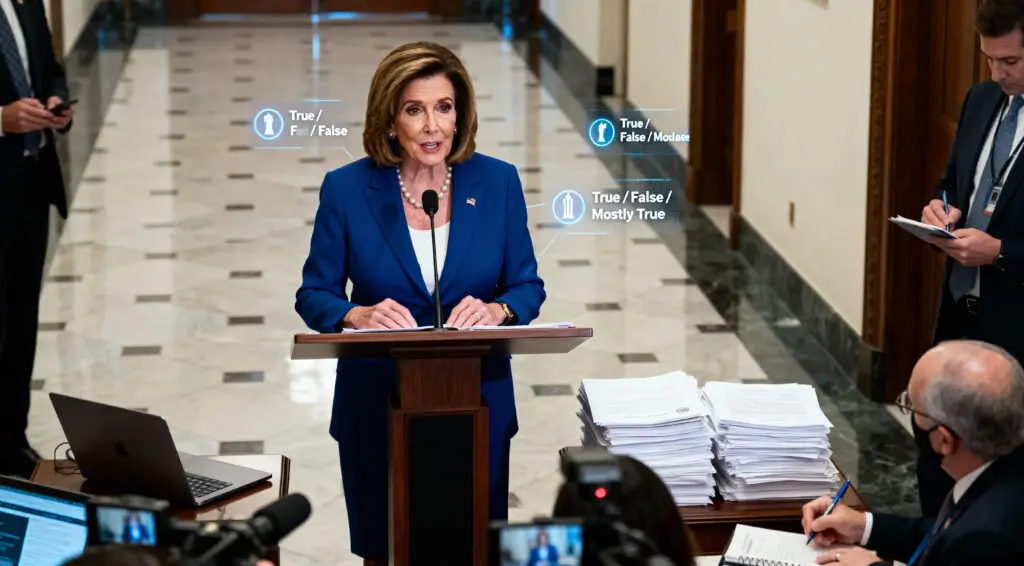A Historic Week for Crypto in the United States
The United States has kicked off its first-ever “Crypto Week” starting July 14, 2025, a pivotal moment for the global digital asset industry. As lawmakers in the House of Representatives prepare to vote on a series of landmark crypto bills, market sentiment has surged. Leading the charge is Bitcoin, which soared past $120,000 for the first time, driven by investor optimism and anticipation of friendlier regulations under President Donald Trump’s administration.
Bitcoin Crosses $120,000 Amid Market Optimism
Bitcoin, the world’s largest cryptocurrency, hit an all-time high of $122,055 on Monday. The rally reflects renewed interest from institutional investors and retail traders alike, spurred by the prospect of regulatory clarity and favorable legislation. Since Trump’s re-election in November 2024, Bitcoin has climbed 75%, rising from $69,539 to its current peak.
Ethereum followed suit, gaining 6% to trade around $3,048, while the total crypto market cap has now reached $3.8 trillion, according to CoinMarketCap.
What Is the US Crypto Week?
Crypto Week refers to a series of congressional sessions during which the House will debate three key bills set to shape the future of digital assets in the US. These include:
- The GENIUS Act: Clarifies whether crypto tokens are securities or commodities, helping startups navigate legal gray areas.
- The Clarity Act: Prevents regulatory agencies from using judicial rulings to broaden their authority beyond congressional mandates.
- The Anti-CBDC Surveillance State Act: Blocks the Federal Reserve from issuing a central bank digital currency (CBDC), citing privacy concerns.
These bills aim to establish a legal framework that both protects consumers and encourages innovation in the blockchain and digital asset sectors.
President Trump’s Crypto Strategy
President Trump, once a skeptic, has evolved into a vocal supporter of cryptocurrencies. His administration has actively pursued a pro-crypto agenda, positioning the US as a global hub for digital finance. Trump has proposed:
- Creating a national crypto reserve featuring Bitcoin, Ethereum, and Solana
- Launching a “Crypto Blue-Chip ETF” through Trump Media
- Promoting campaign donations via crypto during the 2024 election
These moves have won him support from key players in the digital asset world. Trump’s family business has also launched several meme coins like $TRUMP and $MELANIA, earning the president tens of millions of dollars through their affiliated crypto ventures.
Why Does This Legislation Matter?
For years, crypto firms have criticized US regulators, especially the SEC, for providing unclear or contradictory guidance. The Biden administration, in contrast, enforced stricter controls, often labeling crypto assets as securities. This sparked lawsuits and caused some firms to consider moving offshore.
Now, with Trump in office and Congress poised to pass crypto-friendly bills, the tide has turned. Clear laws could make it easier for:
- Startups to launch digital assets without fear of enforcement
- Exchanges to expand their services
- Investors to confidently allocate funds to crypto markets
According to Bitfinex’s Jag Kooner, sidelined capital is expected to re-enter the market even before the bills are officially passed.
Opposition from Democrats
Not everyone is in favor. Democratic Senator Elizabeth Warren has criticized the GENIUS and Clarity Acts, warning they could undermine existing securities laws. She argued that allowing politicians to issue or profit from tokens poses serious ethical risks and could create loopholes for money laundering.
Warren emphasized that anonymity in crypto could enable illicit activities, and called for robust anti-money laundering protections. She also questioned the wisdom of blocking a CBDC, which could offer a secure government-backed alternative to private cryptocurrencies.
Bitcoin’s Role in a Changing Global Economy
Bitcoin’s explosive growth comes amid rising global uncertainty. Trump’s trade policies, including sweeping tariffs, have rocked markets, yet digital assets have proven resilient. Citibank analysts recently noted that Bitcoin’s performance has largely mirrored macroeconomic exposures and rebounded quickly from geopolitical tensions.
If Bitcoin were a country, its market capitalization would place it among the world’s top 10 economies. This positions the asset not just as a speculative investment, but as a legitimate store of value amid shifting monetary dynamics.
What Comes Next for Crypto in the US?
Should the bills pass, the US will officially become one of the most crypto-friendly jurisdictions globally. This could:
- Attract tech talent and capital
- Reduce regulatory arbitrage
- Encourage traditional finance to integrate blockchain solutions
Crypto Week marks a turning point for the industry, and the record-breaking Bitcoin price underscores the confidence investors have in the direction of US policy.
For now, all eyes remain on Capitol Hill as lawmakers decide the future of finance in real time.























